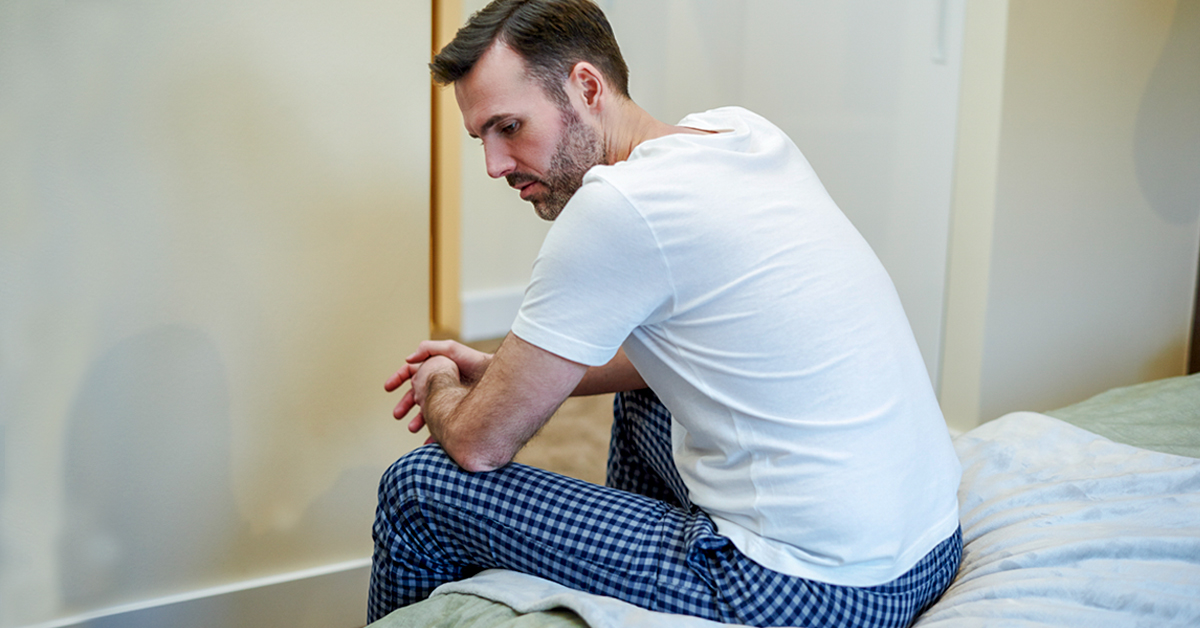Testosterone is a sex hormone often associated with males. If a gay male has a low level of testosterone, the symptoms can include erectile dysfunction, and reduced bone mass and sex drive.
The hormone has many important functions, including:
-the development of the bones and muscles
-the deepening of the voice, hair growth, and other factors related to appearance
-the production of sperm
Testosterone production can slow as a person ages, and many older men have symptoms of low testosterone.
The American Urology Association defines low testosterone as less than 300 nanograms (ng) of the hormone per deciliter (dl) of blood. They also reported that about 2 in every 100 men have low testosterone.
Signs and symptoms of low testosterone
Below are common signs and symptoms of low testosterone in males.
a) Issues with erections
Low testosterone can make it difficult to get or maintain erections.
Testosterone stimulates the penile tissues to produce nitric oxide, which starts several reactions that result in an erection.
If levels of the hormone are too low, a man may not be able to get an erection.
The following are other factors that can cause erectile dysfunction:
-smoking
-thyroid-related issues
-high cholesterol
-stress or anxiety
-alcohol consumption
-diabetes
-high blood pressure
b) Hair Loss
Many men experience hair loss as a natural part of aging.
Authors of a study from 2012 found that testosterone implants supported the regrowth of hair in some males who were receiving treatment for symptoms of sex hormone deficiency.
c) Lowered Bone Mass
Testosterone helps to produce bone tissue and maintain bone volume.
Low testosterone can lead to a reduction in this volume, which can make the bones more susceptible to fractures.
d) Testicle Shrinks
A male with low testosterone may notice a reduction in the size of their testicles that is not related to cold temperatures.
The scrotum may also feel softer than usual.
e) Less Semen
Semen is the fluid that makes up the majority of male ejaculate. This type of fluid helps the sperm move toward the egg.
Testosterone helps stimulate the production of semen, and reduced levels of semen can indicate a reduction in testosterone. It can also lead to trouble with fertility.
f) Problem Sleeping
Men with low testosterone may find it difficult to fall or stay asleep.
Many males with low testosterone also have sleep apnea. This potentially severe disorder causes a person to temporarily stop breathing, which can disrupt sleep.
g) Lower Sex Drive And Urges
Men with low testosterone often experience a reduction in sex drive.
A diminishing sex drive occurs naturally with age, but when the cause is low testosterone, a man will notice a significant decrease in the desire for sex.
h) Reduced Muscle mass
Testosterone plays a role in the development of muscle mass, and reduced levels of the hormone can result in a significant loss of muscle mass.
However, as low testosterone causes a decrease in mass, the function and strength of the muscles do not diminish, according to the findings of a 2016 review.
i) Hot Flashes
While many people associate hot flashes with estrogen levels that fluctuate during menopause, low levels of testosterone may also cause this symptom.
j) Lower Energy Levels
Low testosterone can lead to reduced levels of energy and fatigue.
A person may feel tired, even after adequate rest, or they may develop a diminished interest in exercise or movement.
k) Increase Body Tat
A reduction in testosterone can lead to an increase in body fat.
In some cases, men with a deficiency of the hormone develop gynecomastia, which causes an enlargement of the breasts.
12. Mood Changes And Swings
Some evidence suggests that men with low levels of testosterone are likely to experience a lack of focus, irritability, and depression.
A gay male undergoing any of the symptoms should immediately arrange to see his doctor or an endocrinologists. Gay Health News advises against trying to self-prescribe with supplements, illegal steroids bought online or even hormone replacement pills bought over the counter as some of these can have serious adverse reactions including increasing the risk of prostate cancer. Always consult a doctor.